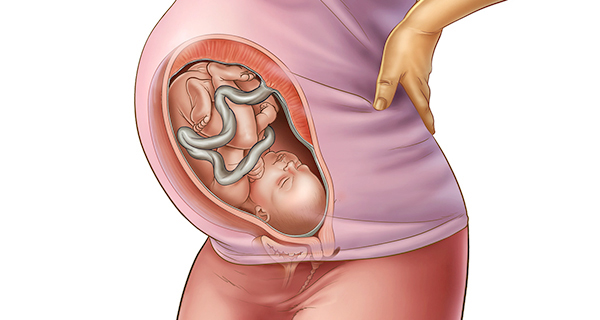Even though your due date has come and gone, don't feel as if you're experiencing humanity's longest gestation. Less than 5% of pregnant women actually have their baby on their due date and deliver either before it or later. You may be discussing the option of being induced with your doctor. Usually, there needs to be a weighing up of factors for it to be done, including your own well-being as well as your baby's.
What’s changing in your body
- Your prenatal checks may include specific post-date or past maturity assessments when you are 41 weeks pregnant. It may be that you are sent for a couple of CTGs (cardiotocographs) and an ultrasound. The amount of amniotic fluid surrounding your baby may be measured, as well as the size of the baby and location of the placenta. The placenta does not work as efficiently in overdue pregnancies and it is important that its function is being monitored.
- You may be asked to keep a record of your baby's movements and activities this week. If there is a significant change or decrease in movement, you will need to present at the maternity hospital.
- You could feel pressure on your cervix this week, a sensation similar to the pain felt when having a pap smear, it may come and go depending on how much pressure the baby's head is applying. Your cervix will be ripening now, which means it is thinning out and ready to start dilating. During active labour, your cervix will need to dilate to 10cm to allow the baby's head and body to exit your uterus.
- You may experience an increase in your vaginal discharge as the cells of your cervix produce a white, watery substance. Some women may have a mucous show this week too and though this is not a true sign of labour, it is an indication that something is happening.
How your emotions are affected
- Every twinge and pain may be a sign that this is it, your wait is finally over. Even going to bed gives you no reprieve and you wonder if you'll be woken in the night with labour pains. Trying to keep a calm attitude is very hard at 41 weeks pregnant. To top everything off, it will seem impossible to make any concrete plans to do anything and you'll feel as if your whole life is hinging on one big event.
- You are entitled to feel more than just a little frustrated, excited, anxious, restless, apprehensive, scared, uncomfortable and tired this week. Try to rest if you feel like it and do simple jobs that don't require too much energy.
- You may find yourself having vivid, strange dreams about the baby. You could dream you have already had it and haven't realised, or it may not be the gender you would have preferred. You may wake feeling more tired than when you went to bed, your imagination can really work overtime when you are overdue.
How your baby is growing
Third Trimester: Week 41
- Most of the lanugo and vernix on your baby's skin has been reabsorbed this week, ending up in their stomach and gut. This, combined with bile fluids and dead skin cells, forms the contents of its first bowel motion. Be prepared for the blackest, stickiest nappy you'll ever need to change.
- It may feel as if your baby is about to literally pop out of you, especially if you've had previous children.
- Your baby will be well developed by now and is very ready to breathe, feed, digest, eliminate, cry and make their needs known, if they choose to arrive this week.
Tips for the week
If you are keen to try and bring on labour yourself, here are a few things you can try:
- Eat a strong, hot curry or spicy Thai meal, or try drinking some castor oil. These tend to make the bowels contract and move.
- Having sex is thought to help because prostaglandins are contained within male semen. These have a similar action to the artificial hormones contained in the gel used to artificially induce labour.
- Go for a long, lengthy walk if you have the energy. This will help to apply pressure to your cervix from the baby's head and may help it to efface (thin) and dilate.
- If you can tolerate it, nipple stimulation may be useful in starting uterine contractions. Get your partner to help.
Do you know that an average baby will need 1057 nappy changes in the first 6 months? Get exclusive promotions and free diaper samples by joining the Huggies Club now! As a member, you can also gain exclusive access to the Huggies Forum and connect with experts to get more personalized pregnancy and parenting advices.
Last Published* January, 2024
*Please note that the published date may not be the same as the date that the content was created and that information above may have changed since.





